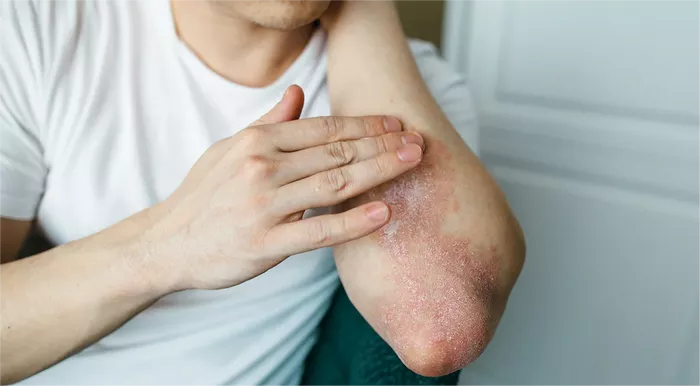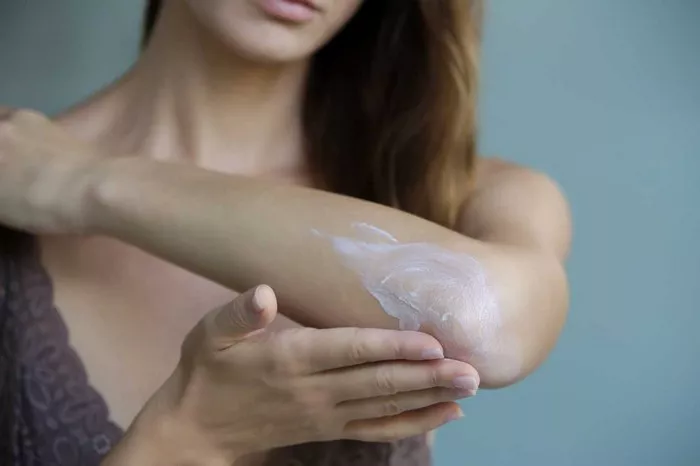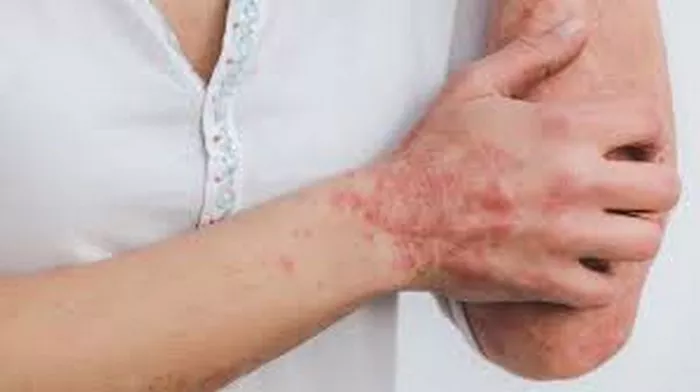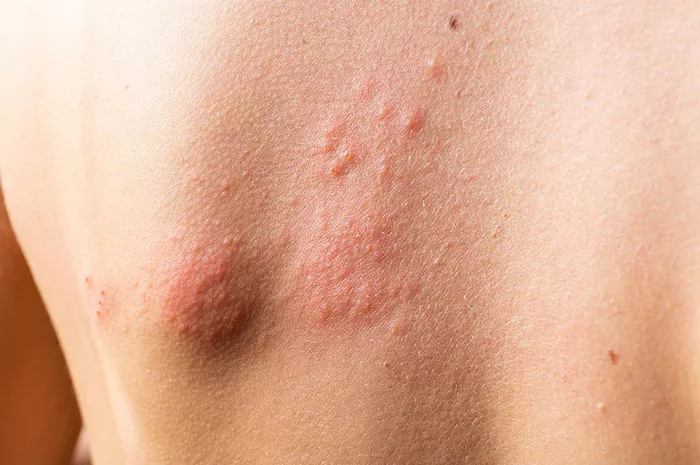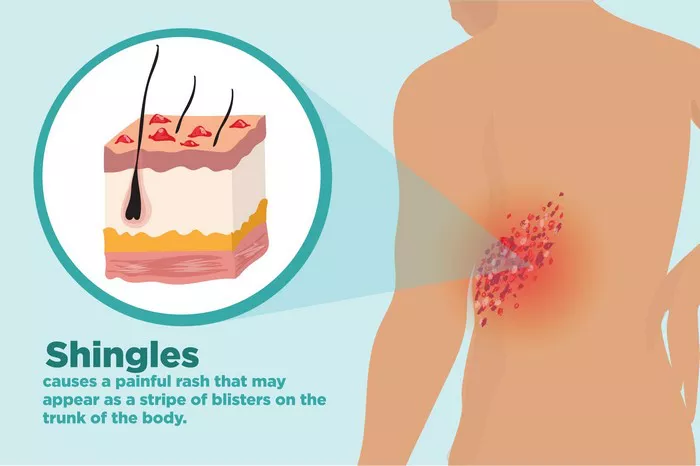Psoriasis, a chronic autoimmune condition affecting the skin, manifests in various forms, each presenting unique symptoms and challenges for those affected. As dermatologists and researchers delve deeper into the complexities of this condition, it becomes evident that there isn’t a one-size-fits-all approach to its management. Understanding the different types of psoriasis is crucial for accurate diagnosis, effective treatment, and improved quality of life for individuals battling this condition.
Plaque Psoriasis: The Most Common Form
Plaque psoriasis stands as the most prevalent form of this condition, affecting approximately 80 to 90 percent of individuals diagnosed with psoriasis. Characterized by raised, red patches of skin covered with silvery-white scales, plaque psoriasis typically appears on the elbows, knees, scalp, and lower back. These patches, known as plaques, can be itchy and painful, causing discomfort and self-consciousness for those affected.
The underlying cause of plaque psoriasis lies in an overactive immune system triggering the rapid production of skin cells. While the exact mechanisms are not fully understood, genetic factors, environmental triggers, and immune system dysfunction contribute to its development.
Management of plaque psoriasis often involves a combination of topical treatments, phototherapy, oral medications, and biologic therapies. Topical corticosteroids, vitamin D analogs, and retinoids are commonly prescribed to reduce inflammation and slow down skin cell growth. Phototherapy, involving exposure to ultraviolet light, can help alleviate symptoms by suppressing the immune system’s hyperactivity. In more severe cases, systemic medications or biologic therapies targeting specific immune pathways may be necessary to achieve symptom control.
Guttate Psoriasis: Small, Droplet-like Lesions
Guttate psoriasis presents as small, red, scaly lesions resembling drops of water scattered across the skin. Unlike plaque psoriasis, which typically develops in adulthood, guttate psoriasis often emerges during childhood or adolescence, commonly triggered by bacterial infections such as streptococcal throat infections. The sudden onset of guttate psoriasis following an infection can be alarming for individuals and may require prompt medical attention.
While guttate psoriasis lesions are smaller and less persistent than those of plaque psoriasis, they can still cause itching and discomfort. Treatment approaches for guttate psoriasis may include topical corticosteroids, moisturizers, and phototherapy. In cases where streptococcal infection triggers the condition, antibiotics may be prescribed to address the underlying infection and alleviate symptoms.
Inverse Psoriasis: Hidden in Skin Folds
Inverse psoriasis differs from other forms in its presentation, primarily affecting skin folds such as the armpits, groin, under the breasts, and around the genitals. Unlike the scaly plaques seen in plaque psoriasis, inverse psoriasis manifests as smooth, red patches of irritated skin. The moist, warm environment of skin folds exacerbates symptoms, leading to increased discomfort and susceptibility to fungal infections.
Managing inverse psoriasis involves keeping the affected areas clean, dry, and well-ventilated to minimize irritation and prevent secondary infections. Topical treatments such as corticosteroids and calcineurin inhibitors may be prescribed to reduce inflammation and alleviate symptoms. Additionally, maintaining a healthy weight and practicing good hygiene habits can help manage inverse psoriasis effectively.
Pustular Psoriasis: Characterized by Pus-filled Blisters
Pustular psoriasis is a rare and severe form of the condition characterized by the formation of pus-filled blisters (pustules) on the skin. These pustules are typically surrounded by red, inflamed skin and can be accompanied by fever, chills, and general malaise. Pustular psoriasis can occur in localized areas or affect the entire body, posing significant challenges for diagnosis and management.
There are several subtypes of pustular psoriasis, including generalized pustular psoriasis (Von Zumbusch type), palmoplantar pustulosis, and acrodermatitis continua of Hallopeau. Generalized pustular psoriasis is the most severe form, often requiring hospitalization for intensive treatment and supportive care.
Treatment of pustular psoriasis aims to alleviate symptoms, reduce inflammation, and prevent complications such as bacterial infections. Topical treatments, oral medications, phototherapy, and biologic therapies may be utilized depending on the severity and extent of the condition. Close monitoring by dermatologists and healthcare providers is essential to tailor treatment regimens and ensure optimal outcomes for individuals with pustular psoriasis.
Erythrodermic Psoriasis: A Rare but Serious Condition
Erythrodermic psoriasis is a rare but severe form of psoriasis characterized by widespread redness and inflammation covering a large portion of the body’s surface area. This condition may develop suddenly or evolve from other forms of psoriasis, particularly pustular psoriasis. Erythrodermic psoriasis can be life-threatening, as the skin’s inability to regulate temperature and protect against infections increases the risk of complications such as dehydration, hypothermia, and sepsis.
Individuals with erythrodermic psoriasis often experience intense itching, burning, and pain, necessitating immediate medical attention. Hospitalization may be required to stabilize the individual, manage symptoms, and prevent complications. Treatment typically involves intensive hydration, topical therapies, systemic medications, and supportive care under the supervision of dermatologists and healthcare professionals.
Conclusion
In conclusion, psoriasis encompasses a spectrum of clinical presentations, each with its unique characteristics, triggers, and challenges. From the common plaques of plaque psoriasis to the severe manifestations of pustular and erythrodermic psoriasis, understanding the different types is paramount for accurate diagnosis and effective management. While treatment approaches may vary, the overarching goal remains the same: to improve the quality of life for individuals living with psoriasis by providing personalized, comprehensive care tailored to their specific needs and circumstances. As dermatologists and researchers continue to unravel the complexities of this condition, ongoing efforts to advance therapeutic options and enhance patient outcomes are essential in the journey towards better understanding and managing psoriasis.

